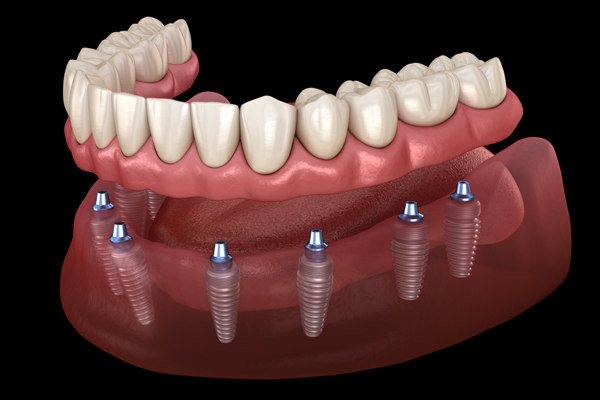Using Fluoride in Teeth Whitening Trays to Reduce Sensitivity

One of the most common side effects of teeth whitening treatments is increased sensitivity to hot and cold foods and beverages. This typically lasts for a few days after the treatment, but it should eventually go away.
Teeth whitening treatments are a fast way to improve the way teeth look. It can increase their whiteness by up to eight shades after a single treatment.
Reducing teeth sensitivity during teeth whitening treatments
Dentists will evaluate their patients before proceeding with teeth whitening treatments. Issues, like tooth decay, are typically treated before whitening teeth since they increase the risk of tooth sensitivity and discomfort. Teeth whitening treatments can even end up damaging teeth that have been affected by decay. Teeth whitening treatments weaken enamel, and it can lead to permanent damage to teeth if the patient's enamel is already compromised.
The tooth sensitivity experienced after teeth whitening often occurs as a response to cold beverages or air. People who have sensitive teeth should inform the dentist about their condition so they can take extra steps to reduce the sensitivity they experience after their treatment.
One of the suspected causes of the sensitivity patients experience after whitening treatments is the bleaching agent getting into the pulp chamber where it irritates the nerve.
Protecting teeth with fluoride treatments
Fluoride plays an important role when it comes to keeping teeth healthy. It strengthens teeth enamel, which, in turn, reduces tooth sensitivity. Dentists sometimes perform fluoride treatments after whitening teeth to reduce sensitivity. The fluoride gel is applied to a mouth tray and the patient bites down on it for about a minute. Fluoride treatments are an effective way to infuse teeth with the much-needed mineral and it can keep tooth decay away for up to six months.
Simple things patients can do to reduce teeth sensitivity include:
- Do not wear whitening trays for longer than the dentist recommends
- Cut back on whitening treatments if you start experiencing tooth sensitivity
- Use desensitizing toothpaste to numb nerves in the dentin
- Over-the-counter pain killers can be used to manage any pain or discomfort
- Use products that contain lower concentrations of hydrogen carbamide or peroxide
- Limit consumption of hot and cold beverages when teeth are sensitive
- Do not overuse whitening products
- Use a mouthrinse that contains fluoride
- Ask the dentist for prescription-grade desensitizing products
Maintaining the results of whitening treatments
There is no point dealing with the side effects of teeth whitening if you are not going to keep the results of the treatment for a while. Teeth will continue to pick up new stains after whitening treatments so maintenance treatments are needed to keep their improved color.
Most patients will be able to preserve the results of their whitening treatments by using at-home whitening kits once or twice a year.
Get a whiter smile
Call or visit our Delaware clinic to learn more about how fluoride can be used to reduce teeth sensitivity after whitening treatments.
Request an appointment here: https://sexton-dental.com or call Sexton Dental at (740) 363-2080 for an appointment in our Delaware office.
Check out what others are saying about our services on Yelp: Read our Yelp reviews.
Recent Posts
Choosing between a dental crown and a filling depends on the extent of damage and the tooth's strength. A crown offers superior coverage by restoring the entire visible portion of a tooth. At the same time, fillings address smaller areas by sealing decay with materials such as resin composite, amalgam, or porcelain. No matter your…
For patients missing most or all of their teeth, implant-supported dentures provide a stable, natural-looking way to restore a full smile. This approach anchors a custom denture to dental implants placed in the jawbone for improved support. Within this category, patients often choose between fixed and removable designs. Understanding how each option works helps patients…
Dental bonding is a simple and effective way to make immediate improvements to the smile by covering stains or fixing small chips, cracks, and gaps in the teeth, providing immediate improvement. The process is painless and quick and does not require major changes to the natural teeth. Those looking for an easy and affordable way…
Dental implants can potentially survive a lifetime of use; however, the implant crowns used for chewing and biting are vulnerable to the same factors that can damage natural teeth. Therefore, it is important to take proper precautions to extend the crown's lifespan.The following are tips to add more years to an implant crown and reduce…


